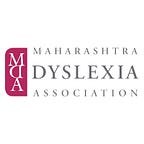Module 5: Smart Learning — Independent Learners
Topics:
- Introduction to Study Skills. Why are Study Skills Techniques Required?
- Building Effective Study Habits — Planning a Schedule and Goal Setting
- Techniques to Enhance Concentration
- Learning Effective Note Taking Skills
- Introduction to strategies for reading, reading comprehension and effective retention of the information
- Introduction to Graphic Organizers for organization of ideas and writing
- Paraphrasing, Summarizing and Concluding
Key Learning Outcomes:
After attending this Module, participants will be able to:
- Plan and set goals for effective and efficient studying
- Apply concentration techniques for maintaining focus on the goals
- Demonstrate the effectiveness of strategies learnt
- Organize information from a given text using a Graphic Organizer, and use it to write descriptive answers
- Summarize and Conclude from a given text
PLEASE NOTE:
Those who have previously attended one or more of the modules that are part of the Foundation Course can attend the remaining modules and get the Foundation Course Certificate to qualify for the Dyslexia Teaching Level.
DISCOUNTED FEE for Participants who sign up for All Five Modules of the Foundation Course!
Members — Rs 31000/-
Non-Members — Rs 36000/-
Participants may choose as many modules as they wish.
Completion of the Foundation Course qualifies participants to apply
for the Dyslexia Teaching and Dyslexia Therapy programmes from USA.For the complete Foundation Course with all 5 modules CLICK HERE TO REGISTER.
CERTIFICATION
Participants will receive a participation certificate for each module.
On successful completion of all 5 modules, participants will receive a Certificate of successful completion of the Foundation Course. This certificate, along with a Bachelor’s degree, will qualify the participants for the Dyslexia Teaching Programme
To know more about individual modules, SCROLL DOWN.
Topics:
- Dyslexia and Other Learning Disorders
- Importance of Early Identification and Intervention
- Classroom Support, Scaffolding and Management Strategies
- RPWD Act 2016 & Accommodations in High Stakes Examinations
- Case Studies
Key Learning Outcomes:
After attending this Module, participants will be able to:
- Differentiate between Dyslexia and associated Learning Disorders.
- Identify students with learning difficulties in the classroom and around them.
- Provide adequate classroom scaffolding and directives outside of it.
- Build awareness and empathy around them, and acceptance in the struggling students.
- Analyze specific cases and illustrate how they will help and support these students in the classroom and elsewhere.
Topics:
- Screening Tools and Assessment Batteries: Are they the same?
- An Overview of the Key Features of a Psycho-Educational Report
- Scores & Percentile Ranks — What they mean
- Diagnosis of Specific Learning Disorder in the light of DSM 5
- Rationale for Accommodations
Key Learning Outcomes:
After attending this Module, participants will be able to:
- State the differences between screening tools and assessment batteries
- List the features and functions of Screening Tools and Assessment Batteries
- Identify key areas to be assessed for the diagnosis of SLD according to the DSM 5
- Explain the rationale behind the diagnosis and the accommodations requested.
Module 3: Multisensory Intervention & Making Sounds Meaningful
Topics:
- Remedial Programme and Curriculum-Based Intervention:
- Their Purpose & How They Differ
- Multisensory Structured Intervention: What Is Taught & How It Is Taught
- Cursive Handwriting: Its Significance
- Importance of Reading and Reading Instruction
- Five Components of Reading
- Phonological and Phonemic Awareness
- Phonics and the 45 phonemes
Key Learning Outcomes:
After attending this Module, participants will be able to:
- Compare and contrast evidence-based and curriculum-based programmes
- Gain an insight into the importance of multisensory structured intervention
- Explain the need to develop phonological, phonemic and phonics skills
- Demonstrate various activities through which these skills can be developed in all students including those with learning differences, from Nursery to Grade 4.
Topics:
- Decoding — making sense of the written words
- Rules and Patterns that aid reading
- Encoding — using the right symbols for the sounds
- Spelling Rules and Patterns to the rescue
Key Learning Outcomes:
After attending this Module, participants will be able to:
- List the Six Syllable Types
- Explain why words are spelt the way they are spelt
- Demonstrate why English is not a funny or unpredictable language as widely believed
- Analyse words on the basis of reading and spelling rules and patterns.
